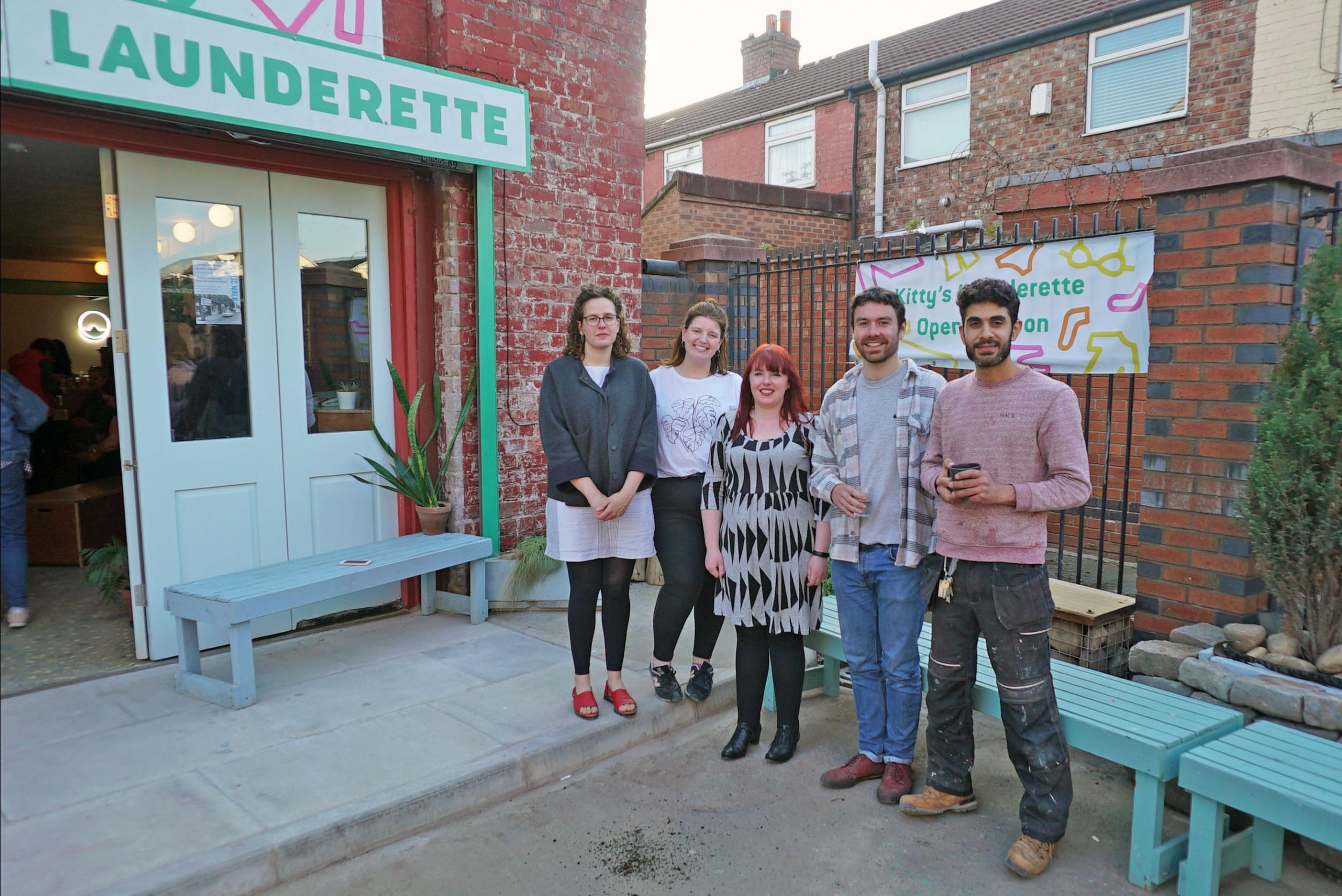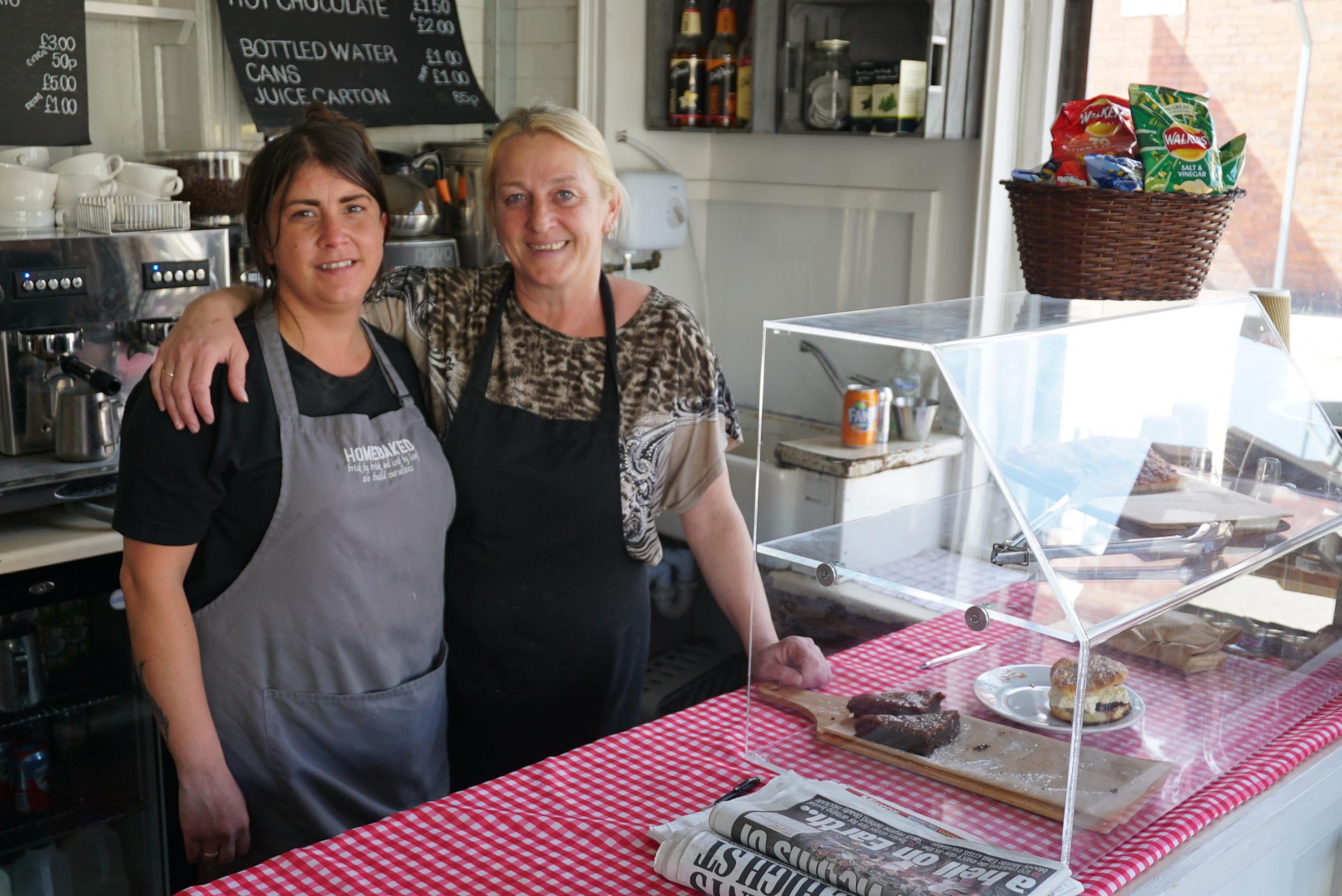‘We are the economy’: the community businesses coming together to transform Liverpool
Eighty-four community businesses are forming a network to support each other

It’s the day after the Premier League final in north Liverpool, and Jurgen Klopp can be seen stomping the pavement outside Homebaked, a bakery that has been selling pies to Liverpool fans and locals since it opened in 2013.
Liverpool might have lost out to Manchester City in the Premier League, but there are other reasons to be cheerful. As well as selling pies – a record 800 on the day of the Premier League final – Homebaked has a sister organisation: a community land trust to own buildings for the good of residents. With ownership, locals can no long be subject to the whims of government plans such as housing market renewal, which left so many surrounding properties empty.
Their success has fed into a network of other like-minded businesses in Liverpool, including Kitty’s Laundrette, which has just opened its doors down the road, and Squash, a food shop and cafe in Toxteth, or Liverpool 8, in the south of the city. “Community businesses in Liverpool are transforming the city,” says Vidhya Alakeson, chief executive of Power to Change, a lottery-funded organisation that supports the sector. “The social history of Liverpool shows a tradition of solidarity and self-reliance over many years, and now that is finding a voice through the community business movement.”
Erika Rushton is the chair of Baltic Creative, which owns and manages more than 130,000 sq ft of workspace in the city’s Baltic Triangle district – now home to more than 600 companies, employing 3,000 people. Baltic Creative is a community interest company, which means half of its annual £400,000 surplus is invested in buying up more property to turn into workspaces, and the other half goes towards events and improvements to the surrounding area.
“Liverpool is a city that has got its confidence back,” Rushton says. “Over a 30-year period, Liverpool was told that its salvation would be an inward investor or a grant from the government. The unspoken message was you’re not capable of this, we’re going to have to do it for you. We have worked to say, that’s not true, we are the economy, it’s not something that is done to us.”
In total, 84 community businesses operate in the city, defined as businesses that trade for the benefit of their communities, according to Power to Change. In May, many opened their doors for community business weekend, an annual celebration of the UK’s 7,800 community business, which contributes £1bn to the economy, Power to Change estimates.

A couple of doors down from Homebaked bakery, Catherine Simmons, a project coordinator at the land trust, happens to be looking out the window of one of the empty houses when Klopp walks past. “Is that…?” she asks in disbelief. Early on, the bakery established the way it wanted to do business with Liverpool FC. It did not take grants, but instead signed a contract for the club to sell its pies in the VIP lounge. The relationship has set the tone for the way that the bakery, the land trust and other community enterprises deal with big business: as equal trading partners.
When Simmons first took on her role at the land trust, she was occupied with finishing the renovation of the flats above the bakery. Now the flats have been filled with tenants, Simmons has turned her attention to the rest of houses on the row. In April, they applied for planning permission to bring the nine properties back to use. The idea was to create a blueprint for a modern high street, drawn from workshops and interviews with residents about the kinds of shops they wanted to see.
Architects Urbed have drawn up plans that show the fronts of houses preserved – an important feature for residents who said they were tired of too much change – but the insides transformed into eight affordable residential units and up to four retail spaces. Urbed have designed the building to the highest environmental standards, to reduce energy bills that add to the financial pressure on lower-income residents. The initiative is being funded by Power to Change and the Homes England Community Housing Fund.
A couple of streets away, Kitty’s Laundrette is getting ready for its opening party. A local cinema group called Cinema Nation is putting on an archive film night themed around rebellious women – a good fit for a laundry named after Kitty Wilkinson, who let women with infected linens use her boiler during the cholera epidemic, and was instrumental in the movement to open the UK’s first public washhouse.
Grace Harrison, a project coordinator at Kitty’s, says that their business has been supported by a network of like-minded enterprises within the sector. “We wouldn’t be here if it wasn’t for Homebaked,” she says. At that moment a delivery of 200 beers arrives – a gift from local Love Lane brewery for the opening party at the weekend.
While Power to Change and other third sector organisations have supported Kitty’s financially, they are appealing for local residents and businesses to buy their services and make the business sustainable: “You can generate a lot of goodwill in your area, but we need people to buy with us if we want to invest locally. Community business is about learning from the third sector, but also about autonomy from income generation,” Harrison says.
In south Liverpool, Squash will start the weekend’s celebrations with a street party hosted by 14 organisations on Windsor Street. Clare Owens, a co-director of Squash, says the party is an important moment for like-minded enterprises to come together and celebrate. “Running a community business is really rewarding but it can be hard work!” she says.
Squash has coordinated food projects and growing spaces in the south of Liverpool for more than a decade. In 2018, it chose community business weekend to open the doors on a space designed by local people on Windsor Street, with high ceilings, natural light and meeting spaces for groups.
As well as making its own sourdough, Squash sells a range of products including organic fruit and vegetables, Homebaked bread, and ingredients to get people cooking, rather than shopping for mass-produced food. Squash, like many businesses in the sector, is aiming for sustainability over profit. Owens sees this as an advantage. “We have a hundred-year street project – imagine food growing on our street over a long period of time,” she says. “It’s a slow, growing project that everyone can access at their own pace. By working together and being resilient in this way, you can effect social change.”
Rachael O’Byrne, community engagement lead at Kitty’s, says that changing the narrative in neighbourhoods that have suffered long-term lack of investment takes time. “It might seem like this is happening all of a sudden but in reality it has been decades in the making,” she says. “People have lived and died in this community waiting for a grand regeneration that never arrived.”
But as the sector grows, collaboration between these businesses is making them increasingly resilient to challenges – and optimistic about the future. “There are so many businesses across Liverpool that are community-minded. We are forming this supportive network that means other new businesses can come to us for advice,” O’Byrne says. “It’s creating a ripple effect.”
Join our commenting forum
Join thought-provoking conversations, follow other Independent readers and see their replies
Comments